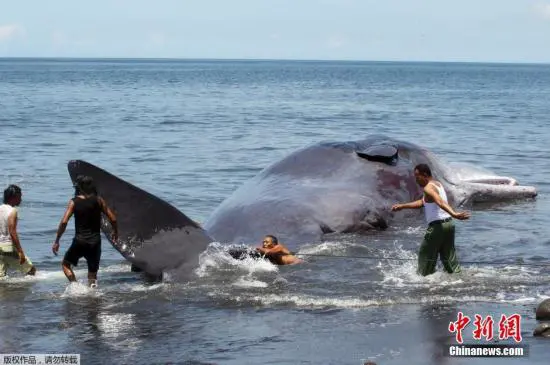(Kachin refugees escape to Yunnan province of China. file photo, source:Morning Whistle.com)
Continuing milatary attacks on ethnic Kachin rebels by Myanmar government have raised the conersn of China and the international community over the region's stability.
The 18-month conflict, which has wracked northern Myanmar since a ceasefire held for nearly two decades, has been taking place in northern Kachin state bordering China’s Yunnan province.
A Chinese Foreign Ministry spokeswoman said Monday that three bombs landed on Chinese territory on Dec. 30 during fighting between Kachin rebels and Myanmar forces.
"The Chinese side demands the Myanmar side immediately take effective measures to prevent similar incidents from happening again," she said.
However, Beijing denied reports last week stating that fighter jets from Myanmar strayed into Chinese territory. The closest fighter jets from Myanmar are about 3 miles from the border, China’s official Xinhua News Agency has reported..
Other than safety concerns, China voiced its worries on the wellbeing of Chinese-owned factories in Myanmar and impact on bilateral trade.
Myanmar would honor its agreements with China and recent “difficulties and conflicts would not harm bilateral cooperation, said U Thein Sein during meeting with a Chinese delegation on Dec. 24, 2012.
The conflict in north Myanmar has been a result of the power race between the country’s quasi-civilian government and former army generals.
According to the Associate Press, ethnic Kachin rebels on Monday accused the government of keeping up air and ground attacks against them despite international calls for restraint.
La Nan, a spokesman for the Kachin Independence Army (KIA) said that the government troops,Tatmadaw, attacked guerrilla hilltop outposts Monday morning and used fighter planes and helicopters in aerial attacks in the afternoon.
Residents in areas close to the conflict said that while Tatmadaw aircraft were regularly spotted on January 3 and 4, it was unclear whether they were hitting KIA positions as they did in late December, as reported by Myanmar Times, a local weekly English newspaper.
The conflict has so far left around 100,000 Kachin homeless since then, said the reporting from Al Jazeera.
Tension with ethnic minorities fighting for greater autonomy in Myanmar is one of the biggest challenges for reformist President Thein Sein, who inherited power in 2011 from the army that has ruled Myanmar for almost half a century.
Despite rounds of peace talks, the KIA is the only ethnic minority that has not agreed to the ceasefire with the government.
A tricky spot during the conflict is the removal of western sanctions on Myanmar since March 2011, which was widely regarded as a reward for the country’s political, social and economic reforms.
One of the long-term challenges in the sanction-free Myanmar is how to balance its thin-skinned rulers and powerful presence of the military, said reports from Reuters.
"Skeptics had warned the international community not to get too caught up in all the excitement of the changes going on, and this escalation is enough to spark a debate on whether sanctions were removed too soon," Reuters quoted Christopher Roberts, a Myanmar expert at the Australia National University, as saying.
Questions have been raised about the authority of the former soldiers who had convinced them of their “irreversible course of liberalization when they ended nearly half a century of military rule.
Others doubted about whether the retired generals in a government hailed for Myanmar’s reform have really changed their harsh old ways. The newly elected leader U Thein Sein appeared to be driving the reforms but the extent to which he controls the Tatmadaw remains unclear, according to Reuters.
Voices for ceasefire negotiation
Last week, U.N. Secretary-General Ban Ki-moon voiced concern about reports of air strikes in Kachin state.
"The ongoing hostilities have already caused large-scale displacement of civilians, who continue to be in need of humanitarian assistance," Ban's statement read. "It is vital that timely access be provided for the delivery of aid to vulnerable communities."
U.S. State Department spokeswomen Victoria Nuland said on Dec. 2 last year that America was “deeply troubled by the increasing violence in northern Myanmar.
“We are continuing to urge the government of Burma and the Kachin Independence Organization to cease this conflict, to get to a real dialogue to address grievances as the government of Burma has been able to do in virtually all of the other conflict areas, Nuland added.
Local politicians also called for further negotiation. Tu Jar, a former vice chairman of the Kachin Independence Organization, said the conflict brought “no benefits for the country and its people, and the government risked alienating supporters both at home and abroad.
“The fighting in Kachin State can make a black mark against the image of the new government and can hamper its reforms at a time when local and foreign support for its efforts towards democracy and peace building is increasing, Myanmar Times quoted Tu Jar as saying..
One of local party - New Mon State Party held emergency meeting on Monday and calls for a immediate countrywide ceasefire and political dialogue with ethnic groups, according to Burma News International, a network of nine independent media organizations.
Nobel laureate Aung San Suu Kyi, now a lawmaker, on Sunday said she would not step in to help end worsening conflict between the army and ethnic Kachin rebels without government approval.
"It is up to the government. This case is being handled by the government at the moment," Suu Kyi told AFP when asked if she would get involved in efforts to resolve the fighting, after the army's use of air strikes drew international concern.
She would need an official invitation to join peace negotiations aimed at quelling the raging civil war, which has overshadowed Myanmar's widely-praised political reforms.
 简体中文
简体中文

